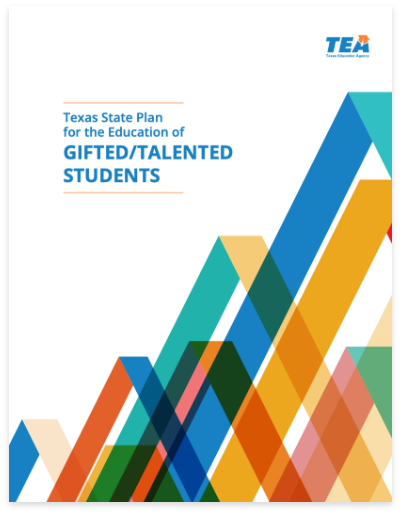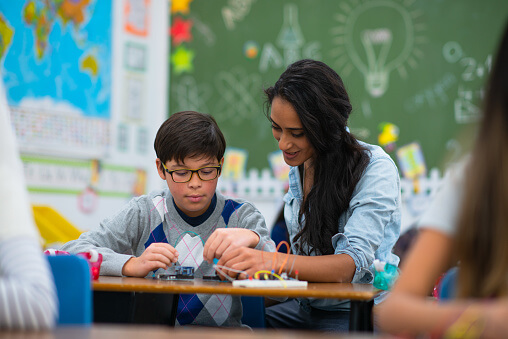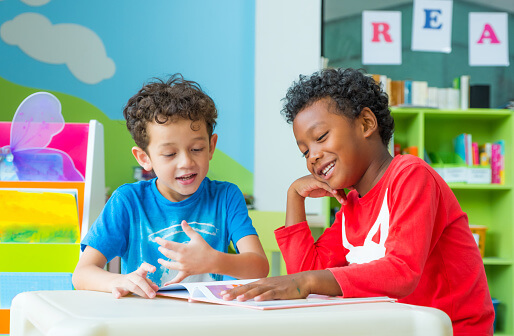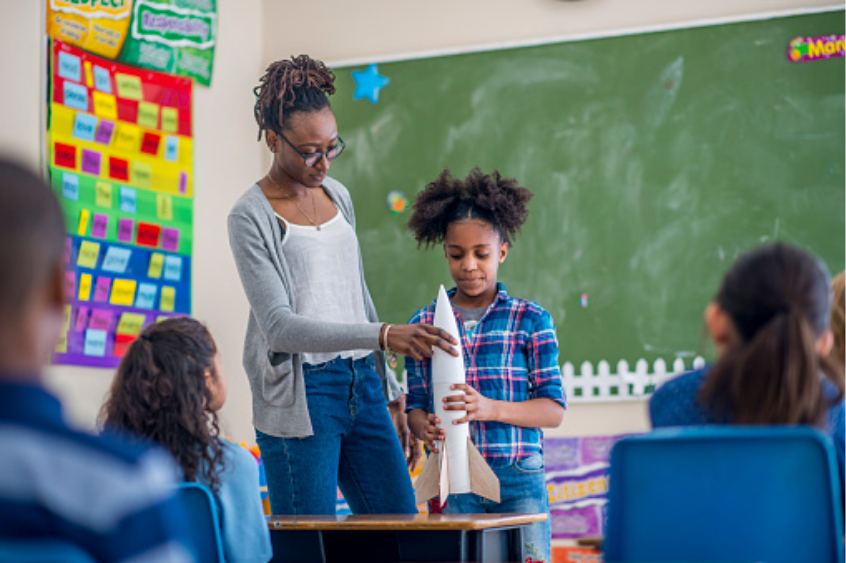
NAGC: What is Giftedness
Learn more about the nature and needs of gifted/talented students.
Many theorists will discuss different ideas on this topic, but the definition is outlined in the Texas State Plan for the Education of Gifted/Talented Students (Texas State Plan).
According to the Texas Education Code, the definition of a gifted and talented student is “a child or youth who performs at or shows the potential for performing at a remarkably high level of accomplishment when compared to others of the same age, experience, or environment and who:

The following are phrases included in the Texas State Plan for the Education of Gifted/Talented Students along with what the statement means for parents, families, and students.
One of the goals of G/T instruction is to provide contextually and culturally relevant experiences for students to be able to guide their learning. While many children benefit from G/T services, there are many that need them to be able to achieve appropriately challenging opportunities in their academic experience.
What are strengths in your child that you believe are hidden from others?
Students in G/T services may demonstrate their need for support in ways that are unique to their life experiences. Many students have various factors that must be considered when looking at the appropriateness of services.
What are unique circumstances that your child has that may affect their identification or services in Gifted/Talented?
Students who demonstrate intellectual gifted behaviors often are able to process information and engage in thinking that manipulates the understood to the unknown in ways that are advanced to other students.
Students who are able to develop unique connections and derive new original meanings that have value.
Students may demonstrate skills in specific talents such as visual art, music, dance, drama, among other areas.
Students may have the ability to direct others in innovative ways to converge into common decisions or actions. This can be done in manners that showcase the child’s self-confidence and ability to adapt to new situations.
Students may exhibit high performances in academic classes through meaningful planned experiences.
One of the goals of G/T instruction is to provide contextually and culturally relevant experiences for students to be able to guide their learning. While many children benefit from G/T services, there are many that need them to be able to achieve appropriately challenging opportunities in their academic experience.
What are strengths in your child that you believe are hidden from others?
Students in G/T services may demonstrate their need for support in ways that are unique to their life experiences. Many students have various factors that must be considered when looking at the appropriateness of services.
What are unique circumstances that your child has that may affect their identification or services in Gifted/Talented?
Students who demonstrate intellectual gifted behaviors often are able to process information and engage in thinking that manipulates the understood to the unknown in ways that are advanced to other students.
Students who are able to develop unique connections and derive new original meanings that have value.
Students may demonstrate skills in specific talents such as visual art, music, dance, drama, among other areas.
Students may have the ability to direct others in innovative ways to converge into common decisions or actions. This can be done in manners that showcase the child’s self-confidence and ability to adapt to new situations.
Students may exhibit high performances in academic classes through meaningful planned experiences.
When considering the G/T definition, it is important to consider the following:

Learn more about the nature and needs of gifted/talented students.

Common myths about gifted/talented students and gifted/talented programs.

Potential student overexcitabilities that may be demonstrated by some gifted/talented students.

Different profiles of gifted individuals that may help families better understand the nature and needs of gifted/talented individuals.
Students in G/T services have opportunities to explore curriculum in ways that are unique to their experiences and identity. This can take place through enrichment (supports in curriculum to take your child’s learning to more appropriate levels) or acceleration (opportunities for students that advance through curriculum rapidly).
Students who participate in services designed for gifted/talented students will demonstrate skills in self-directed learning, thinking, research, and communication as evidenced by the development of innovative products and performances that reflect individuality and creativity and are advanced in relation to students of similar age, experience, or environment. High school graduates who have participated in services for gifted/talented students will have produced products and performances of professional quality as part of their program services.

You can contact your child’s school to learn more about how they meet the needs of your child in instruction or you can contact the Educational Service Center that supports the location where your district is located.
Educators that provide your child with G/T services are trained in 30 Foundational Hours of Gifted/Talented instruction and a yearly update training as per the State Plan. Some common topics that are discussed in the trainings that refer to characteristics of G/T students are Overexcitabilities and Profiles of Gifted/Talented Students.
All personnel involved in the planning, creation, delivery and administration of services to gifted/talented students possess the knowledge required to develop and provide differentiated programs and services.